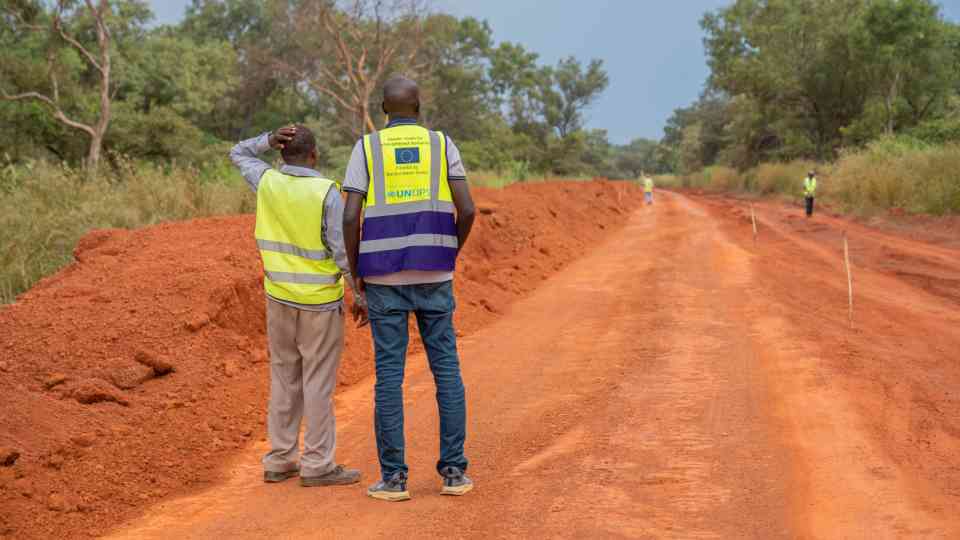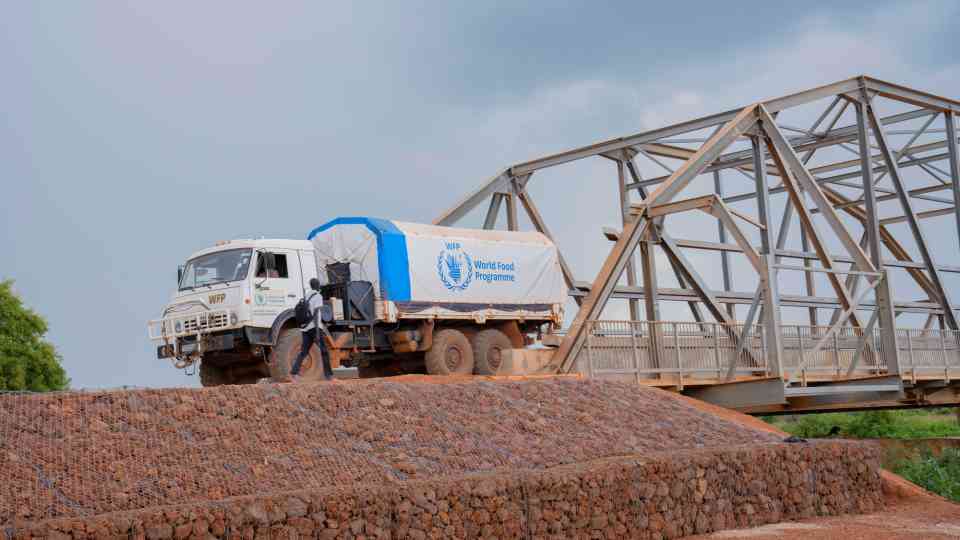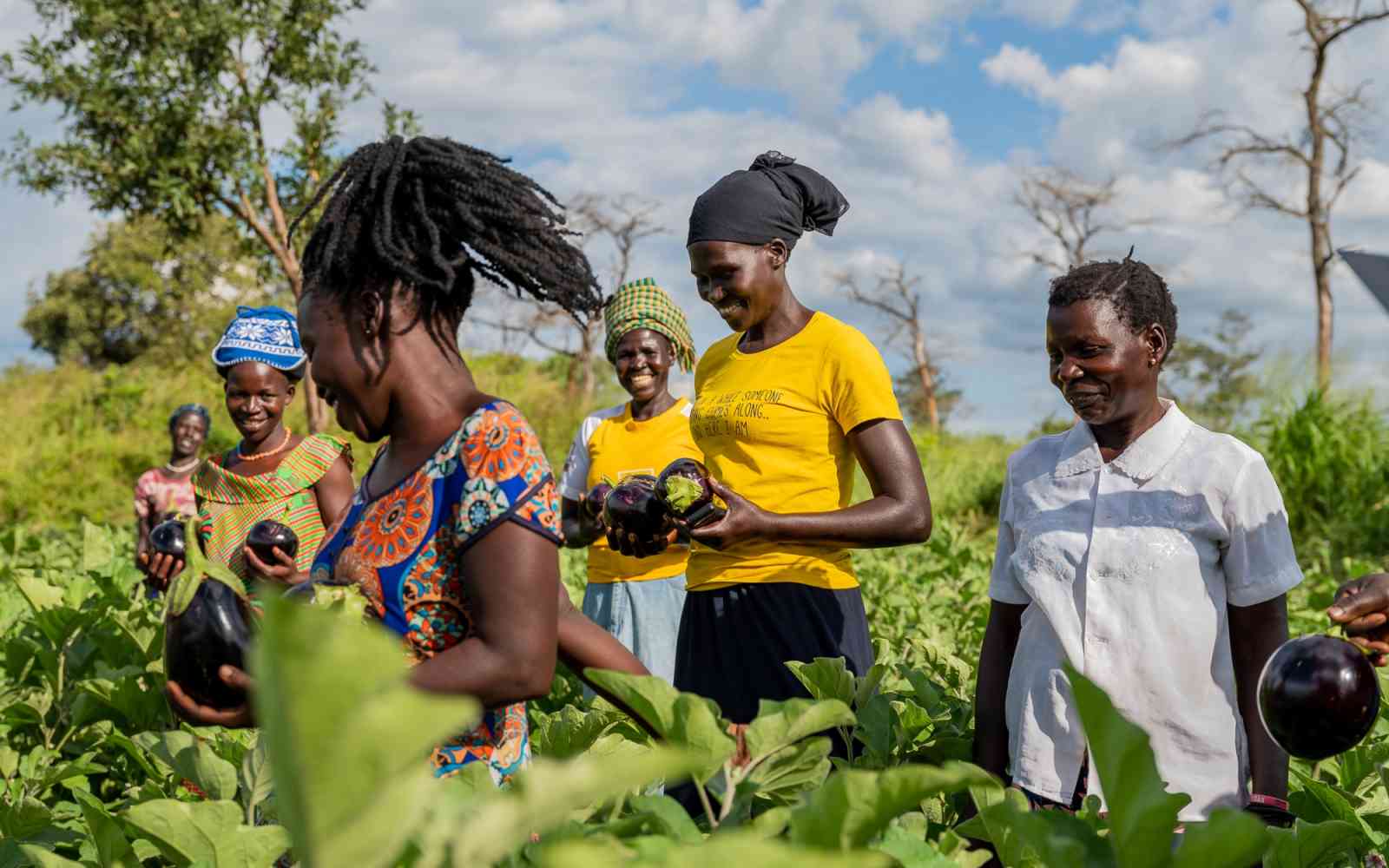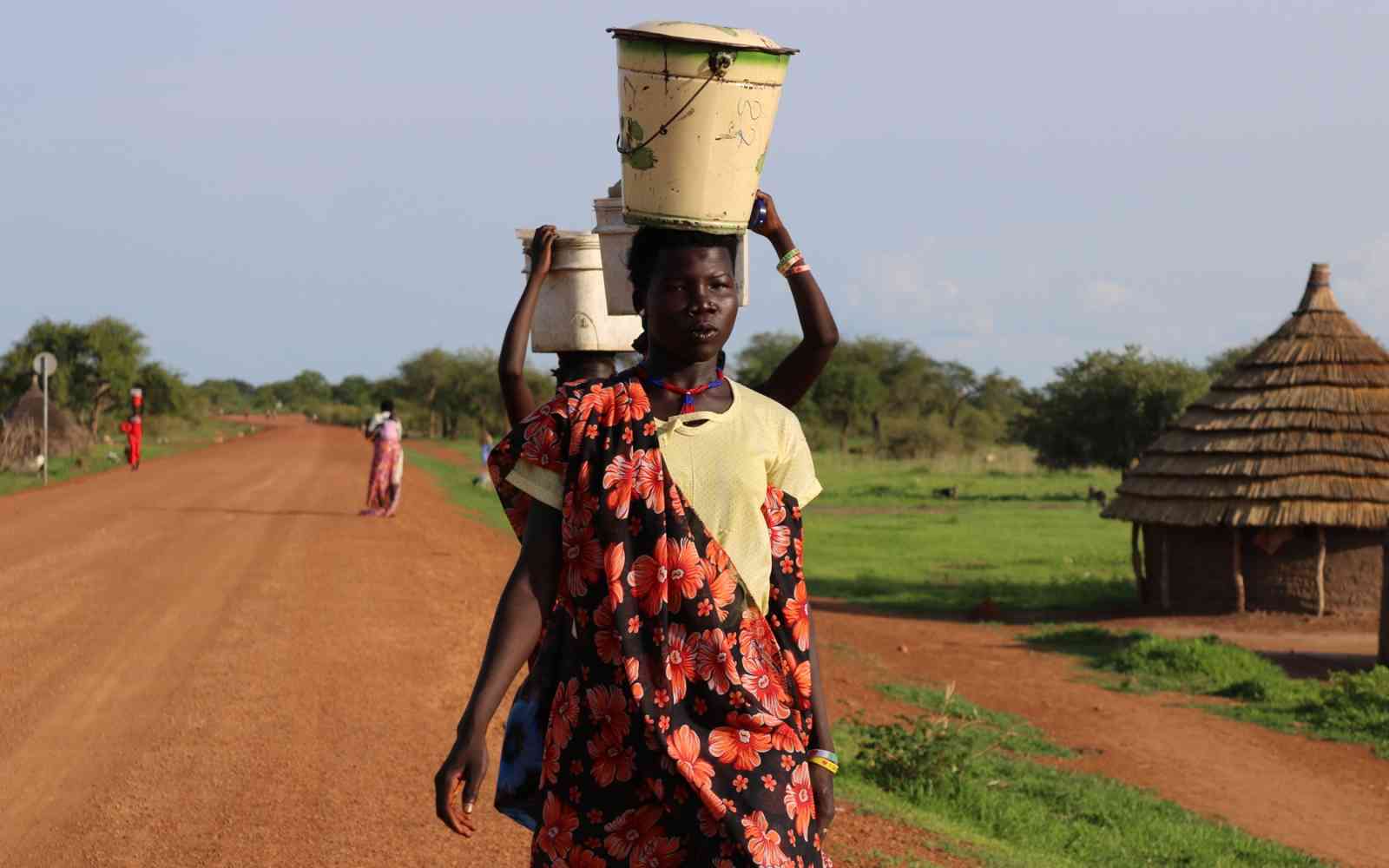The United Nations Office for Project Services (UNOPS)

Improving livelihoods and increasing resilience in South Sudan
Feeder roads are helping improve living standards for more than 1.2 million women, men and children in the country's Greater Bahr El Ghazal region.
Decades of armed conflict have largely destroyed the road network in South Sudan – and existing roads are often cut off due to floods and insecurity caused by recurring conflicts.
This makes accessing remote and conflict-affected areas especially challenging – and jeopardizes food security. The lack of usable roads also limits access to education, medical services and economic opportunities.
Children struggle to get to and from school. Women who experience a medical emergency during childbirth risk death. Farmers face difficulties selling their agricultural products – and the bulk of their products risk going to waste. The high cost of transporting goods – and the amount of time it takes – also hampers economic growth and social development.
Funded by the European Union and implemented by UNOPS, a feeder road and bridge construction project in South Sudan's Greater Bahr El Ghazal region is helping to change that.
Covering 44 kilometres, the new road infrastructure connects remote agricultural communities in Northern and Western Bahr el Ghazal States. Road drainage systems help to increase the resilience of the newly constructed roads to flooding and the impacts of climate change.
From Aweil West and Aweil North to Wau, the impact of the project is far-reaching.
As more people working on the feeder roads project came to Kayango, Mary Akuach Yaak started a tea-making business. She makes around 2,000 South Sudanese pounds (approximately $3) in profits each day.
Income from small businesses like Mary's has been used to pay school fees, access medical treatment, and purchase farm tools, food and clothing.

"I used money from this business to buy clothes and some food items for my family. I got the first money to start this business from my brother who is working as a laborer in road construction.”
– Mary Akuach Yaak
The 163-metre-long Nyamlel Bridge, completed as part of the project, connects South Sudan to Sudan – and connects communities to livelihood opportunities.
"The construction [of Nyamlel Bridge] has increased employment opportunities and built the capacity of the locals, with skills – including technical training – improving their livelihoods," says Barnaba Nyok Urac, Director General for Roads, Bridges and Transport in Northern Bahr el Ghazal State.
John Akuar, a resident of Kayango, participated in a training programme as part of the project.
“I can survive even if this project comes to an end," John says. "I learned numerous skills – from welding to using the heavy hand compactor machine. I feel empowered and plan on setting up my own welding business at Kayango Market along the road.”


“Life before the start of this project was not easy – there were no business or employment opportunities in the area. During the rainy seasons, we remained cut off by the Nyamlel River," explains Martha Adut Anei, a young woman from Aweil North County.
"I was employed at the bridge construction site and now I can buy food and clothing for my children, and even pay for their school fees," says Martha.
The feeder roads now provide access to and from communities that were isolated for years due to the lack of a road network in the area. Schools and health facilities have been constructed along the roads, increasing access to education and healthcare.
Community members from Basilia, Gomjuer Centre, Malual North, Malual West and Udici now have access to several weekly mobile markets that have sprung up on the sides of the roads.
Farmers are now cultivating crops increasingly for commercial use. Farm unions have been established.
"Now that the Kayango-Basilia Road is constructed, we can sell our produce to interested traders at the roadside. We have also opened our Rian Fey local market where we can also sell our produce from our farms,” says Awek Mayuen, who returned to her village from a displaced persons camp.


“I came here three years ago to do commercial farming so that I can sell some of the produce. I planted groundnuts, sesame, sorghum, okra and cassava, among others. The land is very fertile, I get a lot from my farm, and the road has made trading easier for us. Many people come from Wau to buy our produce, and this has improved our livelihoods,” says Joseph Dut Lual.
"Security has greatly improved, trade within the counties as well as across the borders with Sudan has improved, benefitting the communities,” says Barnaba Nyok Urac, Director General for Roads, Bridges and Transport in Northern Bahr el Ghazal State.


About the project
The construction of the feeder roads and Nyamlel Bridge are part of the 'European Union Zonal Effort for Agricultural Transformation: Bahr el Ghazal Effort for Agricultural Development' (EU ZEAT BEAD) project, which is improving food security and supporting economic development in South Sudan. As part of the 8-year, €44 million project, UNOPS built or maintained more than 470 kilometres of feeder roads, constructed 4 markets, and built 5 water, hygiene and sanitation systems in Warrap State, Lakes State, Northern Bahr el Ghazal State and Western Bahr el Ghazal State.















